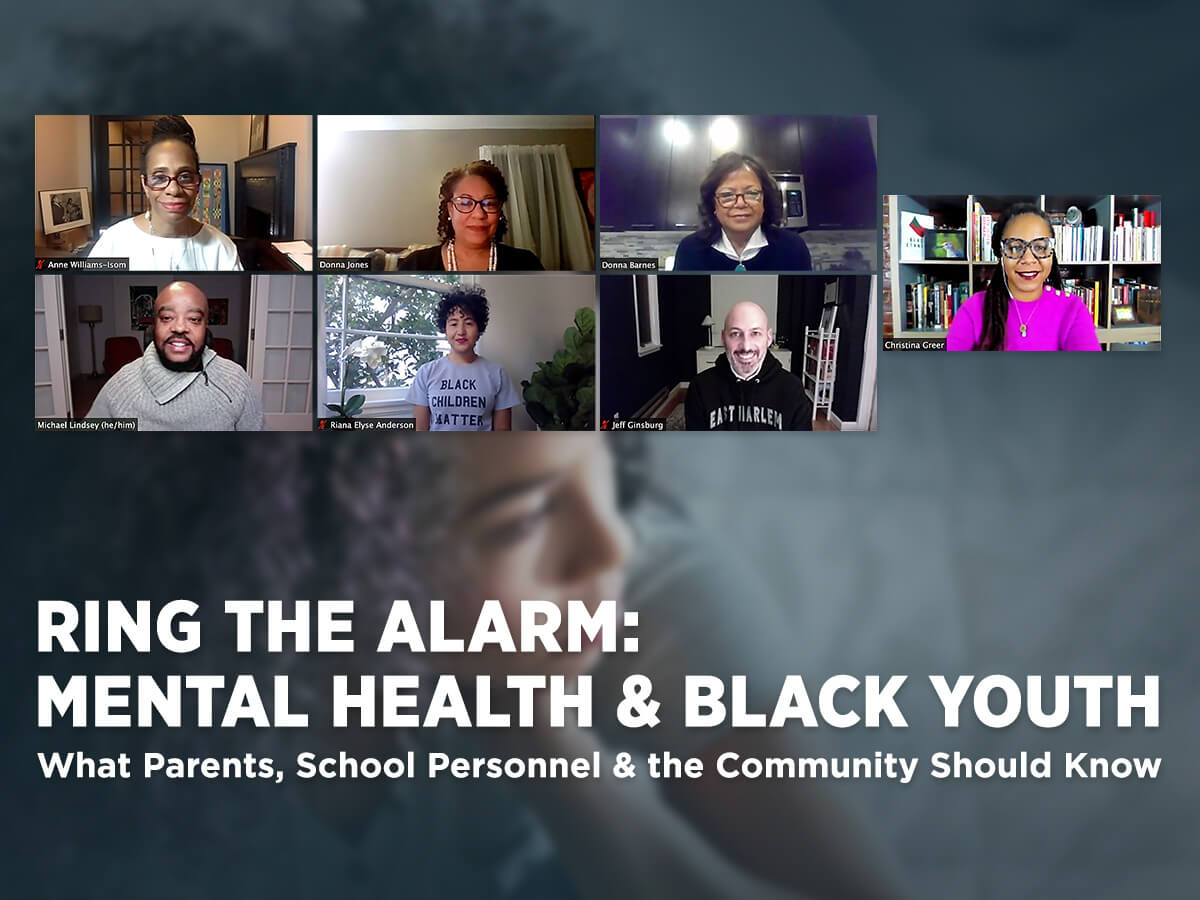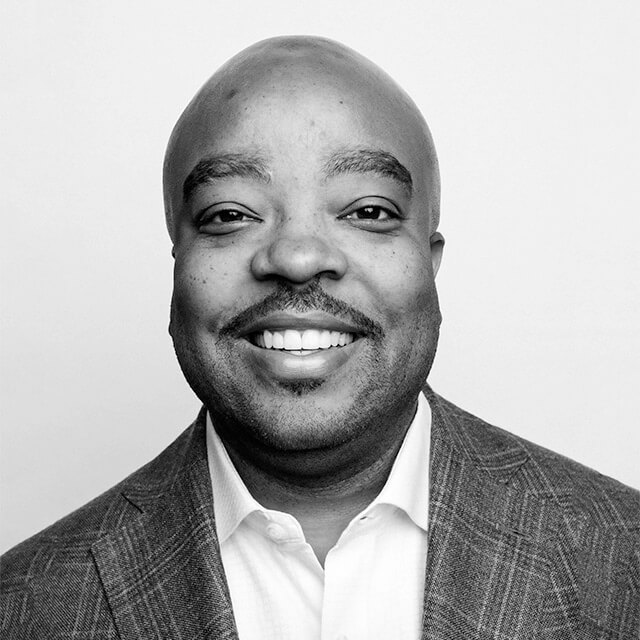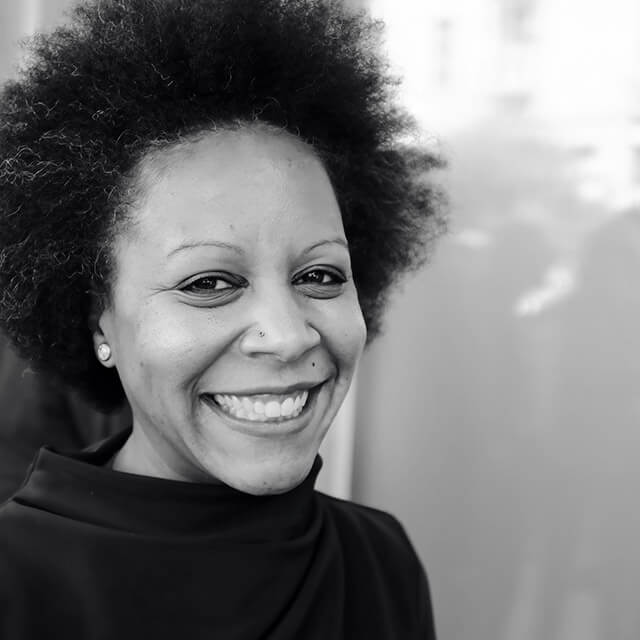NEW YORK, January 19, 2021 – Black youth face unprecedented challenges to their mental well-being during this time of COVID-19 and racial justice reckoning. While there’s much research to be done on the impact of these developments in children and teens, it’s worth noting that their older peers are feeling the pressure. In June 2020, 25.5% of young people ages 18-24 reported that they had “seriously considered suicide” in the previous 30 days, according to CDC data. So did 18.6% of Hispanic people and 15.1% of Black people, compared with 10.1% overall.
In commemoration of the Rev. Dr. Martin Luther King, Jr. National Holiday yesterday, a panel of experts convened virtually to talk about the mental health trends they are seeing, as well as the actions we must take to help Black youth thrive. Moderating the discussion was Dr. Christina M. Greer, who is Politics Editor of TheGrio, co-host of the FAQ-NYC podcast, and an Associate Professor at Fordham University in New York.
Video Recording
Black youth were already experiencing signs of trouble before the pandemic hit, said Dr. Michael A. Lindsey, Executive Director of the McSilver Institute. “What we’ve been seeing over the last 25 to 30 years is an upward trend, in terms of suicide behaviors, among black adolescents in particular, but also among younger-age kids between the ages of five and 11 years old. Suicide rates have actually increased among black youth at an alarming rate.”
Since the advent of COVID-19, the challenges have only increased, said Dr. Donna Jones, Superintendent of the Patchogue-Medford School District in Suffolk County, NY and President of the Greater New York Chapter of the Links, Inc. “They are sincerely confused. There is an increased level of absenteeism and disengagement among their children. There’s an increased sentiment of despair, due to the isolation. There’s so much uncertainty that their grades are being affected and they’re having difficulty adapting to change.”
She added, “I’ve seen trends of heightened anxiety and stress because of food insecurity, fear of COVID-19, loss of family members…and not knowing from day-to-day whether their activities will go back to some semblance of normality.”
Yet, the trauma faced by Black students isn’t new, said Anne Williams-Isom, who is the Dumpson Chair In Child Welfare in the Graduate School of Social Services of Fordham University, and the former CEO of the Harlem Children’s Zone (HCZ). She said that during her tenure at HCZ before the pandemic, “About 30% of the kids that went to our school had a family member that was murdered.” Further, a quarter of students in their Promise Academy scored 4 or higher for adverse childhood experiences (ACEs), measures of traumatic childhood events that can have long-lasting impacts on mental health, learning and well-being later in life.
“We did a study in Washington, D.C. and found out 70% of the kids that we looked at—over 500—had experienced homicide. If it wasn’t of a neighbor, it was of a parent or a brother or sister,” added Dr. Donna Holland Barnes, Associate Professor in the Department of Psychiatry at Howard University.
Having more social workers or other mental health professionals in schools, proportionate to student population, is an important step to addressing the mental health of Black children and teens, said Dr. Lindsey. Ideally, said Jeff Ginsburg, Executive Director of the East Harlem Tutorial Program, the professional is “someone who knows the child, and isn’t just brought in at the moment.”
Having as many of those social workers be Black and brown is important as well, said Dr. Barnes. Dr. Jones concurred, but noted that budget challenges faced by predominantly-Black and brown school districts in the COVID-battered economy could affect implementation of such changes.
Yet, despite all the challenges they face, young people are more resilient than we sometimes give them credit, the panelists agreed. “The young people this summer showed up and showed out in a way that let me know: we are in fact going to be all right,” said Dr. Riana Elyse Anderson, Assistant Professor at the University of Michigan School of Public Health, referring to last year’s racial injustice protests. “I was floored by their resistance and their seeking of liberation.”
The discussion was co-sponsored by the McSilver Institute, The Greater New York Chapter of the Links, Inc., East Harlem Tutorial Program, Boys & Girls Club of Harlem and One Hundred Black Men of New York.
More Resources
See this page for slides and more resources relevant to this discussion.
This community forum was hosted by:
- The Greater New York Chapter of the Links, Inc.
- NYU McSilver Institute for Poverty Policy and Research
- One Hundred Black Men of New York
- East Harlem Tutorial Program
- Boys & Girls Club of Harlem
Please contact mcsilver@nyu.edu with any questions about the program or accessibility accommodations.


